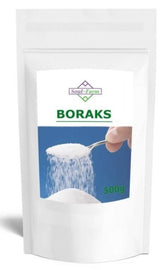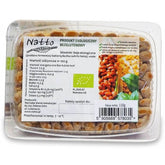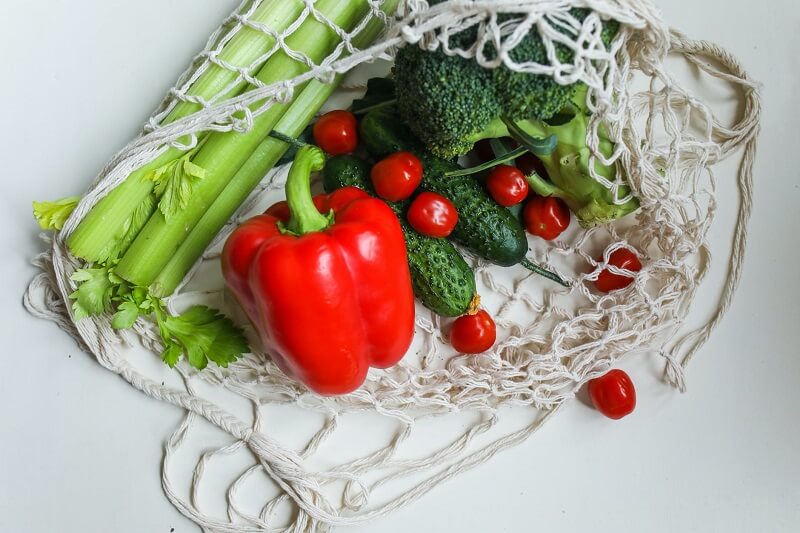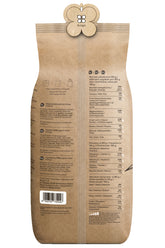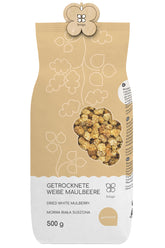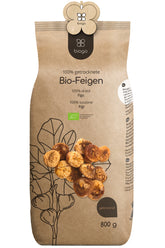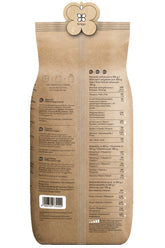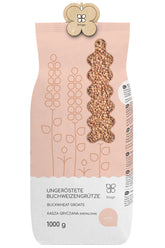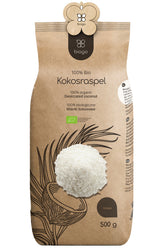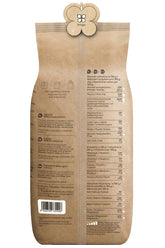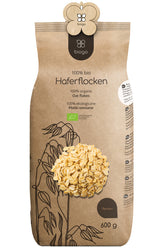How can you support liver function naturally?
CONTENTS
- Basic information about the liver
- The biggest threats to your liver
- Signs that your liver is not performing at its best
- How can you support the liver's work?
- Water
- Choline and phospholipids
- Herbs that support the liver's function
- Other products that support the work of the liver
- Summary
One could say there are no more important organs. They are all crucial for maintaining good health over the years. Their condition and how we treat them have a major impact on their function. This can manifest itself in various ailments as well as the proper functioning of the organs over a very long period of time, despite the passage of years. This is why a proper diet and lifestyle are so important. In this article, we focus on the liver and how to care for it naturally.
Basic information about the liver
Our liver is one of the largest organs in our body and performs a number of vital functions. It is a gland. The weight of the liver in an adult varies between 1300 and 1700 grams, depending on gender and age. It is part of the digestive system and is located below the diaphragm, bordering the intestines and stomach from below. Furthermore, it demonstrates the ability to regenerate itself even after severe and extensive damage. The liver is inextricably linked to digestive, metabolic, and storage functions. Its most important functions are undoubtedly the synthesis of bile, blood clotting factors, cholesterol, and triglycerides, as well as enzymes and amino acids. It is also extremely important for our metabolism. It can be immediately associated with the metabolism of ethanol to acetaldehyde, which, incidentally, is responsible for the popular hangover, but not only that. The liver converts complex carbohydrates into easily digestible glucose, and the excess is stored as glycogen or fat. It also metabolizes amino acids and purines. The liver also breaks down dead red blood cells. It can also store certain substances. These include iron, fat-soluble vitamins (A, D, E, K), and small amounts of vitamins C and B12. The liver also functions as a filter. The blood flowing through it is purified of various products of cellular metabolism. It should also be mentioned that all active ingredients contained in medications or stimulants, for example, that enter the body via the digestive tract are also broken down in the liver. Another interesting fact is that it fulfills several non-obvious functions. It regulates body temperature and buffers blood sugar levels. However, in the fetus, it also plays a hematopoietic role.
The biggest threats to your liver
Now that we've briefly discussed which processes the liver is responsible for in our body, let's move on to the risks. It's no secret that, due to its detoxification function, it is very susceptible to damage from various stimulants. Alcohol and smoking are among the biggest destructive factors for our liver. It can certainly cope with very small doses, but that's usually not enough. These stimulants are very harmful because the liver has to work hard to neutralize them and convert them into less toxic chemicals, which are then eliminated from the body. The same applies to various medications, which are largely metabolized by this organ. Therefore, don't overdo it, especially those used ad hoc. We're talking about all kinds of painkillers, and combining them with alcohol is a deadly combination for the liver. Also worth mentioning is excess sugar in the diet. This is also harmful to the liver, as it is responsible for its metabolism. Large amounts of simple sugars, as well as sweeteners, can impair its function and regenerative capacity. Particularly dangerous is glucose-fructose syrup, which is a popular ingredient in sugary drinks, as well as all kinds of cookies, bars, and gummy bears. Also worth mentioning are the popular flavor enhancers monosodium glutamate and salt itself. Excessive amounts of these in food also have a detrimental effect on liver function. The same applies to food processing: highly processed foods, popular fast food, and generally foods with a high fat content put a strain on the liver. It's also worth paying attention to the method of heat treatment. Ideally, choose boiling, stewing, baking, or braising. Frying, especially in deep fat, is best kept to a minimum.
Signs that your liver is not performing at its best
The liver should be cared for even if it doesn't exhibit symptoms. However, it's even more important to attend to it if we notice symptoms of a malfunction in its functioning. The basic symptoms are sharp pains under the right ribs or digestive system problems. These include bloating, constipation, diarrhea, and a characteristic bitter taste in the mouth. Dermatological changes may also occur, manifesting as a yellowing of the underside of the tongue, warts, or a feeling of cold and dampness in the skin. We can also mention, for example, constant fatigue, increased blood pressure, and mood swings. Liver diseases can manifest themselves in many ways, as they control the enormous processes in our body. It's also worth noting that the liver has no sensory innervation, so it doesn't usually show signs of pain, which doesn't stop it from reminding us of its existence in many ways.
How can you support the liver's work?
The simplest way to say this is to avoid adding work to our liver. This involves limiting the consumption of all those products that are not conducive to health and proper functioning. However, we are not always able to eliminate everything. For example, it is difficult to suddenly stop taking medications that are taken regularly. Therefore, it is worth supporting its work by consuming products that have a positive effect on it. So the question is, what should you eat to help it?
Water
Yes, it's no joke. Water is essential for the entire body, but also for the liver. It is the environment for almost all chemical reactions that take place in our bodies. Furthermore, it supports and accelerates the detoxification process while ensuring adequate hydration. To support liver function in this way, it is recommended to drink about 3 liters of water daily. You can add lemon, which further accelerates the production of liver enzymes.
Choline and phospholipids
Choline is one of the main substances responsible for the proper functioning of the liver. It provides the proper structure to hepatocytes, the cells that largely make up the liver. Choline is also found in phospholipids, such as those found in soy. Therefore, it is recommended to consume soy products to provide the body with choline. You can also supplement this nutrient in the form of various capsules or oils. The phospholipids themselves also have a protective effect on our liver.
Herbs that support the liver's function
The galaxy of herbs and plants that can help us care for this important organ is quite extensive. Milk thistle is undoubtedly one of them. The silymarin it contains has choleretic properties and stimulates bile production, thus also protecting hepatocytes. Also worthy of mention is the common artichoke. Widely used in cooking, it not only offers flavor but also many active ingredients. They are antioxidant and purifying. It acts by supporting liver regeneration and eliminating free oxygen radicals that can damage the liver itself. Nettle, on the other hand, in addition to its protective action, contributes to the maintenance of normal blood cholesterol levels. Among the other herbs, we can also mention Paraguayan holly, greater celandine, and chicory. Their action also consists in promoting the regeneration of this organ, but also in preventing its fibrosis.
Other products that support the work of the liver
A cleansing diet is also beneficial for the liver. It is based on fresh fruits and vegetables, as well as fiber-rich foods. Generally, all green vegetables are healthy for the liver, as are beets, carrots, tomatoes, and even potatoes. Fiber-rich foods include, above all, brown bread, groats , rice , bran, and oatmeal. It's also worth including all kinds of nuts and seeds in such a diet. There are also popular spices that have a choleretic effect. These include thyme, marjoram, cumin, and oregano. In addition to their brilliant aroma, it's worth considering their use in supporting the functioning of this organ.
Summary
A healthy liver is an essential component of a well-functioning body. It endures a lot and forgives various nutritional deficiencies. However, it is worth supporting its work and preventing its diseases. Let's be aware that prevention is much better than cure, and this article was created for this purpose. We can support the liver in many ways, and one of them will not contribute to its work. In general, a healthy diet is also beneficial for this organ. However, with increasing age, it is subject to natural deterioration processes, and it is worth supporting its work by consuming or supplementing with products that are beneficial to it.
THE PUBLISHER'S CHOICE
Almonds 1 kg BIOGO
- €11,69
€13,75- €11,69
- Unit price
- / per
Walnuts 800 g BIOGO
- €8,65
€10,18- €8,65
- Unit price
- / per
Dried organic mango 400 g BIOGO
- €10,99
- €10,99
- Unit price
- / per
Dried White Mulberries 500 g ORGANIC
- €5,84
€6,87- €5,84
- Unit price
- / per
Dried organic figs 800 g BIOGO
- €30,12
- €30,12
- Unit price
- / per
Unpeeled buckwheat groats 1 kg BIOGO
- €2,81
€3,31- €2,81
- Unit price
- / per
Organic coconut flakes 500 g BIOGO
- €10,07
- €10,07
- Unit price
- / per
Organic oat flakes 600 g BIOGO
- €3,77
- €3,77
- Unit price
- / per
Organic cashew nuts 1 kg BIOGO
- €19,99
- €19,99
- Unit price
- / per
Milk thistle seeds 1 kg BIOGO
- €3,99
- €3,99
- Unit price
- / per






